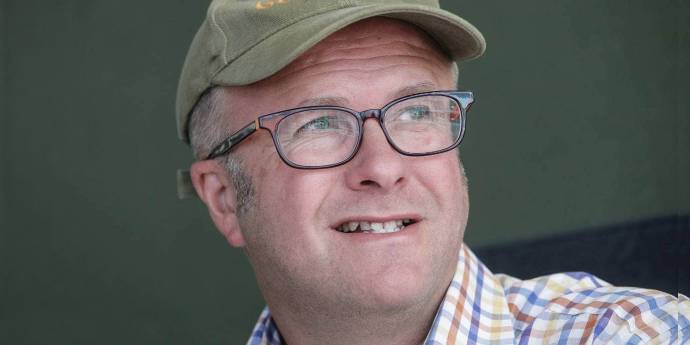PODCAST
Ep 6: Built heritage and High Risk Industries
Murray Dickenson on his love of buildings and the arts and why governance is important to both.

CREDIT: KEVIN STENT/ STUFF
OPINION: This week I step down as chair of Timely.
Timely is a software platform for the health and beauty industry, and hair salons in particular.
If you’ve ever seen me and been unfortunate enough to note my paucity of hair, not to mention lack of beauty, then you’ll know the irony of having me as a chair. Fortunately, hair and beauty weren’t part of the selection criteria for chair.
Timely chief executive Ryan Baker is a singular individual.
He established Timely as the company where trousers were optional, because it used remote working as the default from day one. So you only saw your workmates from the chest up via Zoom or Google Hangouts.
Like Wordpress founder Scott Berkun, Baker sought to grow a company that was fundamentally different and relied on trust and technology to grow that company. It's been a stunningly successful formula with Timely having won the New Zealand High Award for emerging company and New Zealand Trade and Industry Exporter of the Year Awards.
I’ve done two terms with the Timely crew, some seven years in total.
Back in 2013 when I joined the fledgling board, Timely had 1900 businesses using their appointment booking software. Mainly in New Zealand.
The company had been started 18 months earlier by Baker and mates Andrew Schoffield and Willy Berger – all of whom were unlucky enough to have had me as a boss in a former life.
Today Timely is valued at well over $100 million. It’s the leading player in Australia and New Zealand; and the United Kingdom is its biggest growth market.
Over 50,000 professionals use its platform every day, which now does everything from payment to online video consultations; and allows staff to run their business off their smartphone.
Now it’s time for the company to have the benefit of fresh governance and a chair with deeper understanding of the industry.
I’m blessed to have worked with some extraordinary companies as a director. From banks to car companies, software companies to breweries, and broadcasters to fund managers.
They are all different, but the joy of the job is being able to share learnings across them, and in doing so hopefully unlock growth.
When I joined Timely there were 12 staff and it was all hands to the pump. In these early stage companies, as well as providing governance oversight to the company (and helping craft the nuts and bolts of charters and constitutions); the directors can blur into being honorary members of the executive.
So in the first year or two myself and fellow Trade Me alumni Rowan Simpson found ourselves writing policies, helping draft pitch decks and tapping our networks. Then as the company grew we distanced ourselves from working in the business, to working on the business and providing proper governance.
This involved growing the board, tapping new governance blood that knew the industry we were growing into.
My simple view of the world see boards needing to deliver three main things.
First appointing a great chief executive and move them up or out. Second is to help set the strategy then monitor its implementation, being ready to tweak if it's not working. Third provide prudential oversight over the likes of risk, health safety, finance and privacy.
But the thing that many boards and directors forget, is they are responsible for not sticking around too long.
A 2015 Harvard Business School study found that the highest performing organisations had about a third of their board turn over every three years. Contrastingly the lowest performing organisations had little or no turnover.
So an obligation on each board is to set the cadence for this turnover which means a decent governance succession plan, one that is well socialised with shareholders.
The Ministry of Business, Innovation and Employment has just published its Monitoring arrangements for Crown entities.
While not exactly an irresistible page turner, it provides a pretty handy handbook for any director (and is a lot more to-the-point than many governance guides). It also gives insight into how the organisation charged with co-ordinating governance across 21 public sector agencies thinks about oversight of the overseers.
As well as making clear expectation of boards, the document helps keeps them honest by reminding them of their responsibility to do decent inductions, ongoing director development, annual board self-evaluations and exit interviews with retiring board members.
Exit interviews are particularly important I think, as a retiring director has nothing to lose by giving a frank assessment of strengths and weaknesses of an organisation. And in my experience is something seldom performed by boards.
Xero founder Rod Drury, a man who was skilled at managing board turnover, once told me that good directors were a little like good underwear.
You need a variety of colours and styles, and you need to change them to get the best out of them and keep everything nice and fresh. Sounds about right to me.
|
Republished with permission from Stuff: One responsibility directors often forget - Not sticking around too long The views expressed in this article do not reflect the position of the IoD unless explicitly stated. Contribute your perspectives and expertise on an area of governance to the IoD membership and governance community. Contact us mail@iod.org.nz |
Mike "MOD" O'Donnell MInstD is a professional director, facilitator and writer with a particular interest in digital disruption and consumer centricity.
MOD is chair of Garage Project. He is also an executive director of Kiwibank, Radio New Zealand, Tourism New Zealand, Serato and Kiwi Wealth. MOD is an independent weekly business columnist for Fairfax Media and is host of the TVNZ series Start Up.